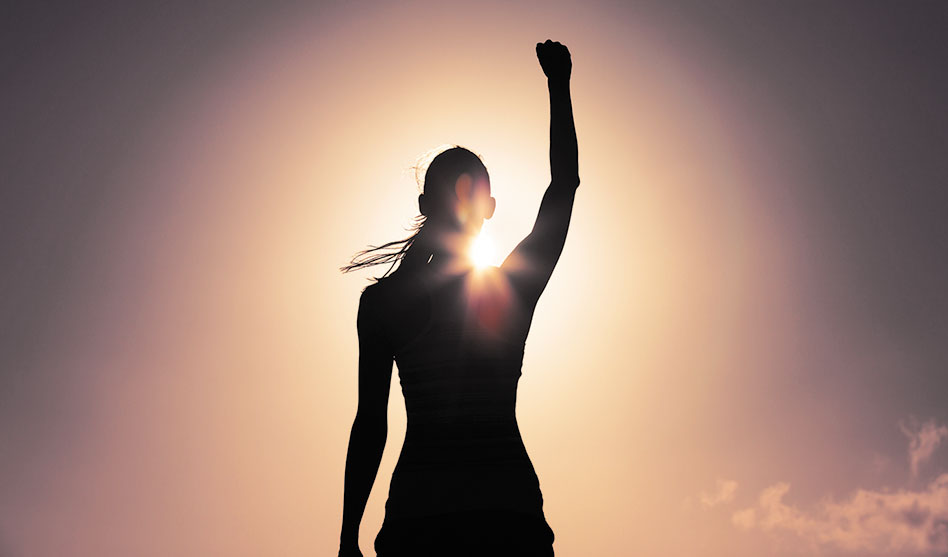Leveraging our differences to impact change
 I conducted eight years of research after battling homelessness, harassment and discrimination as a proud out woman of transgender experience. The skills I learned around emotional intelligence and resource allocation were instrumental in my career development from homeless part-time bank teller at PNC Bank to becoming their national vice president of diversity and inclusion in four years.
I conducted eight years of research after battling homelessness, harassment and discrimination as a proud out woman of transgender experience. The skills I learned around emotional intelligence and resource allocation were instrumental in my career development from homeless part-time bank teller at PNC Bank to becoming their national vice president of diversity and inclusion in four years.
I left after 11 years working there to focus full time on expanding my research on empowerment and publishing an award-winning and bestselling book. This research was centered around empowerment and how empowerment is impacted by our empowering differences, as we call them.
These differences were all the items that make up our human lived experiences, including our abilities and attributes, age, class, education, ethnicity, gender, language, race, religion and sexuality. As I started hosting focus groups with people around the world across the differences, I realized that depending upon which differences we were trying to drive more empowerment for, there were certain actions that resonated towards empowerment faster. These actions then became what we call empowering actions, because they have the ability to connect empowerment people.
When looking at the definition of empowerment, I saw it said authority and power connected to people. I also really wanted to understand what people felt was authority, and what people felt was power in relation to empowerment.
My thinking was that if we could help people realize and measure their empowerment that this would have a more lasting effect toward success for people.
Measuring how people are feeling in relation to empowerment and what makes them different isn’t easy. How we feel as people is central to driving empowerment on this planet for others.
According to the dictionary, empowerment is authority and power connected to people. But what is empowerment to people? What I found in my research, through asking a thousand people, is that 85 percent of the responses included passion and other human-centric feelings. Other answers included communication, trust, empathy, confidence, decision-making and more.
Based on responses, it is hard to measure or track or judge the impact of each of these things, which means it’s tough to communicate the impact of human feelings on others.
The remaining 15 percent of respondents mentioned items that were easy to track, measure and judge since most of them had a number or measure built into their response. These items were mostly time- or money-related, so their success and/or the connection to other people could be quantified.
This survey confirmed my suspicions that the definition could be validated by people’s responses, so the emotional answers that are hard to measure became “authority,” and the numeric responses were the “power” since power is measured by a numeric value typically.
After conducting the research on empowerment, the focus groups I hosted drove the empowerment algorithm of the top empowering actions for each of the differences. Since our LGBTQ community centers around, technically, all the differences we have as a human, assigning which actions to prioritize can be difficult. The top three actions based on the research centered around a broader look towards impacting both gender and sexuality differences.
Gender and sexuality differences are the immediate cross-section that our community has that either garners more empowerment or less empowerment for us each day.
The first action to focus on is educate. This action, of course, stems around learning new skills, trades and resources. It also connects to impacting others through education.
Not everyone will be able to go and get a certification or a degree to empower themselves more. Remember that empowerment is about connecting your authority and power to people, so that means that education is most empowered when it’s shared with others.
The second top empowering action, based on our research, is inclusion, and inclusion is the connected sense of belonging and contributing to culture to build more emotional intelligence for others. Inclusion is the ultimate action that connects to others because it cannot be done alone.
One recommendation is to join a networking group or a chamber of commerce like the North Texas LGBTQ Chamber of Commerce. The act of joining another group and sharing your expertise, contributing or volunteering is always showcasing inclusion. This can be done as an ally as well, which can be even more empowering for others.
The third and final top empowering action to impact our community is access. Access is the act of accessibility and connection to others that should drive an equitable future for our entire society. People wondering how to drive the actual “equity” in diversity, equity and inclusion programming (DEI) need to focus on creating access for those who do not have access.
Access a very compelling empowering action for the LGBTQ community because it is a pathway to influential resources.
Both by our LGBTQ community and our allies must take these three empowering actions to strengthen our impact on the world.
But don’t just do a few actions and think that’s going to be enough, because you must incorporate empowerment of others into everything that you do and track the success of it. This means that all your actions really should be empowering actions and together that’s how we will make a difference, or as we say we will be empowering differences.
Ashley Brundage, who rose from homelessness to become national vice president of diversity and inclusion for PNC Bank, is the author of the award-winning book Empowering Differences. She is parent to two teenage sons, and in 2022 she consulted for the White House and won an award from the governor of Florida for her work in diversity and inclusion.

